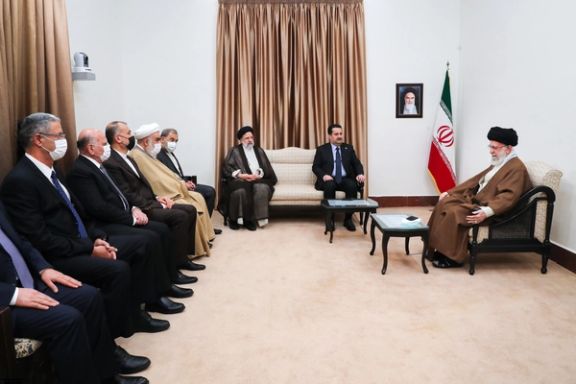US Agrees To Change Iraq's Payment Method To Iran For Energy

Washington has made a change in the way Iraq pays Iran for electricity, seemingly to reduce Iranian pressure on Iraq, but it could potentially also weaken US sanctions.

Washington has made a change in the way Iraq pays Iran for electricity, seemingly to reduce Iranian pressure on Iraq, but it could potentially also weaken US sanctions.
According to an exclusive report by Reuters, the Biden administration on Tuesday moved to let Iraq pay Iran for electricity via non-Iraqi banks, a US official said, a step Washington hopes may keep Tehran from forcing unpopular power cuts during the sweltering Iraqi summer.
Secretary of State Antony Blinken signed a 120-day national security waiver allowing Iraq - heavily dependent on Iranian electricity - to deposit such payments into non-Iraqi banks in third countries instead of into restricted accounts in Iraq, said the official who spoke on condition of anonymity.
Reuters, apparently quoting the official, said that funds put into the non-Iraqi banks, like those deposited into Iraqi banks, will also be restricted, still requiring US permission for Iran to get access to them and only for spending on humanitarian goods.
Tehran has in the past pushed Baghdad to secure US permission to release such funds by cutting Iranian natural gas exports to Iraq, limiting Iraq's ability to generate power, and forcing deeply unpopular electricity cuts.

Reuters said the change came at the request of the Iraqi government, apparently in the hopes that this might transfer some of the pressure that Iran has exerted on Baghdad to other countries.
But it is not clear if the change is not the result of an Iranian plan to gradually weaken the impact of US banking sanctions on its dealings with Iraq. Iran’s next move could be pressure on Iraq to ask the United States to lift all restrictions on the funds, enabling Tehran to withdraw cash dollars. The current Iraqi government has closer ties with Tehran than its predecessor.
"We have to help the Iraqis with this perennial pressure from the Iranians to access the money," the US official told Reuters.
"The Iraqis have requested, and now we have agreed, to expand the waiver," said the US official, adding that this might help ensure better compliance with the US requirement that any disbursements be for humanitarian purposes.
"It also helps the Iraqis, at least somewhat, to have an argument to make (to Iran) that they are not in control of the money that they have paid (into non-Iraqi accounts)," he added.
If this was a change resulting purely from an Iraqi-US agreement, it is not clear whether Iran might ease up on Iraq as a result. Tehran could decide it has greater leverage over Iraq than over other nations and continue to exert pressure.
Last week it was reported that Iraq was willing to barter oil with Iran instead of cash payments, which could also violate US sanctions.
Iraq exports at least four times more oil than Iran, with more than $100 billion annual revenues, but with its inefficient government and corruption it has not been able to tap its own natural gas to produce electricity.
Iran is under extensive US economic sanctions reimposed in 2018 after then-US President Donald Trump abandoned the nuclear deal that Tehran struck with major powers Britain, China, France, Germany, Russia and the United States in 2015.
Trump believed his policy of "maximum pressure" on Iran would force it to accept more stringent restrictions to its nuclear program, which the United States, European powers and Israel fear may be designed to obtain a nuclear weapon.
As a result of Trump's withdrawal from the deal and US President Joe Biden's failure to revive it, Iran could make the fissile material for one bomb in 12 days or so, according to U.S. estimates, down from a year when the accord was in force.
With exclusive reporting by Reuters